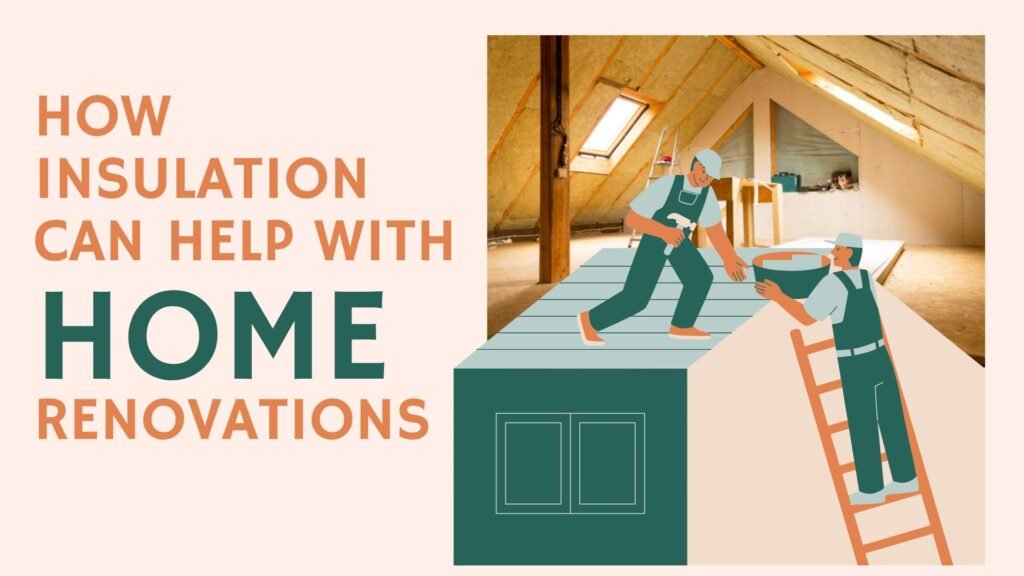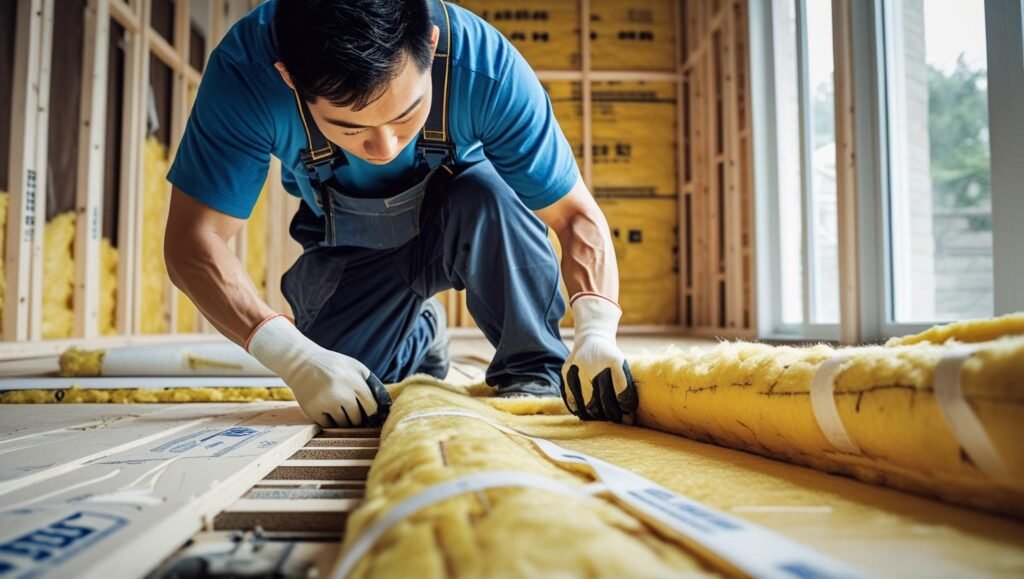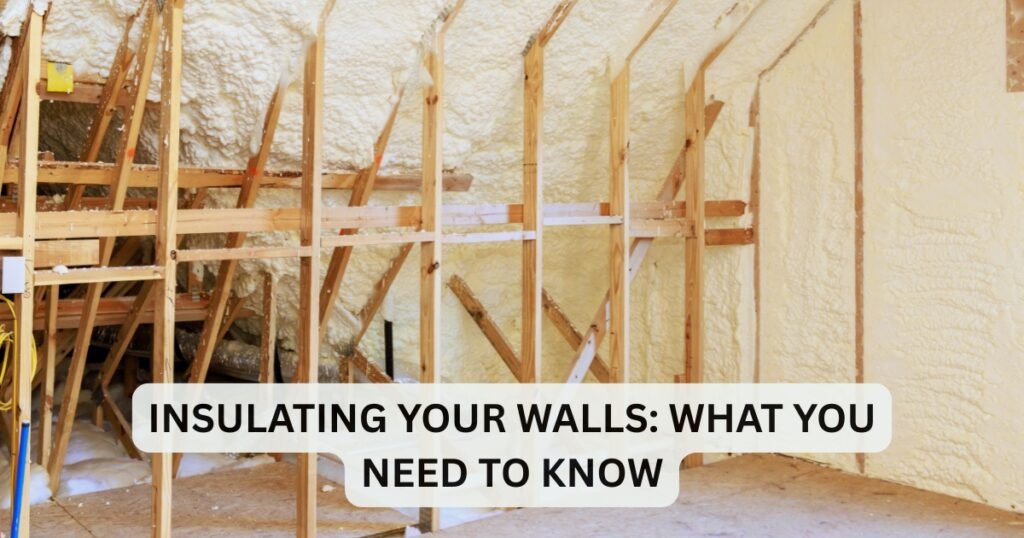Blown-In-Insulation

Unlock Your Home's Energy Efficiency with Blown in Insulation
Overview of blown-in insulation
Fiberglass and mineral wool are the two most popular insulation materials. Because of its effective insulation properties, homeowners often choose it for ceilings and walls.
Cellulose blow-in insulation: pros and cons
Whether you’re insulate a new home or upgrade your old one, blown-in insulation is worth considering. It’s important to understand the pros and cons of cellulose insulation before making your decision.
Cellulose is made from recycled newsprint and denim. Additionally, it's fire-resistant, mold-resistant, inexpensive, and has a high R value.
Insulation with blown-in cellulose
Blown-in cellulose insulation has both benefits and drawbacks, which are closely tied to its properties and how it’s manufactured. There are also different types of cellulose insulation.
Pros and Cons of
Blown-in cellulose insulation has pros and cons depending on the type and how (and where) it’s installed. Before making a decision, you should consider the insulation’s specific features.
Cellulose Insulation: What Is It?
In order to fully understand the topic, you need to know what cellulose is, where it comes from, and how it works as insulation. By knowing this, you’ll be able to choose the best insulation for your house.
Pros and Cons of blown in insulation
Pros of blown in insulation
2.It is heat-resistant and has a high R-value.
3.It is heavily treated with fire-retardant chemicals.
4.It is resistant to pests, mold, and mildew.
5.It is very affordable.
Cons of blown in insulation
2.Cellulose insulation is prone to sagging and settling.
3.Boron, a chemical needed for treating cellulose insulation, is currently in short supply.
4.This material absorbs moisture easily.
5.All types of cellulose insulation require a vapor barrier.
What is Cellulose Insulation?
Insulation with cellulose
Cellulose insulation is one of the oldest insulation materials. It’s been around for over a century, but manufacturers added fire-retardant chemicals like ammonium sulfate and boric acid in the 1950s.
Cellulose Insulation Uses
Insulating attic floors and walls
Often, homeowners choose cellulose to insulate unfinished attics and enclosed walls. Because you don’t have to remove walls to install it, it’s a popular choice for existing buildings.
Using blown-in insulation
You can blow loose-fill cellulose insulation into attics or walls. It’s an effective insulator that conforms to most structures and spaces without disturbing the finish.
Cellulose Insulation Benefits
Draftproofing and soundproofing
Insulation with cellulose enhances soundproofing and draftproofing in your home.
R-value and energy efficiency
Cellulose insulation has a high R-value, so it resists heat flow well. Keeps your house warm in winter and cool in summer.
Environmental Impact and Material Composition
Recycled paper
Paper products like newsprint, cardboard, and other paper products are used to make cellulose insulation. Heat doesn’t flow through wood fibers because of their cellular structure.
Environmental benefits of recycling
More than 70% of cellulose insulation today is recycled. In a 1,500-square-foot home, cellulose insulation can recycle as much newspaper as one person consumes in 40 years.
Waste reduction
We’d save over three million tons of discarded newsprint a year if every new home used cellulose insulation.
Durability and protection
Mold, fire, and pest resistance
Cellulose insulation is treated with non-toxic chemicals like borax, ammonium sulfate, and boric acid. It’s a safe and durable option for your home because it prevents pests, mold, and fire.
Looking to get in touch with us for a free quote?
Advantages of Cellulose Insulation
It’s Eco-Friendly
Sustainable Insulation: Cellulose
More than 70% of cellulose insulation is made from recycled paper, which means discarded paper and cardboard gets repurposed.
Recycling Process That Works
Recycling cellulose insulation is different from recycling paper. In contrast to other recycling methods, cellulose insulation doesn’t need bleaching to remove ink. The paper is shredded and pulverized instead, so it’s more energy-efficient.

Manufacturing that’s environmentally friendly
During the manufacturing of cellulose insulation, no greenhouse gases are used. Furthermore, it contains more recycled material than any other type of insulation available today.
Heat-Resistance Cellulose Insulation R-Value and Heat Resistance
Cellulose insulation has an R-value of 3.2 to 3.5 per inch of thickness, which is better than fiberglass. Cellulose is made from paper, which contains wood fiber, so it gets this high rating.
The role of wood fiber in heat resistance
cellulose’s ability to resist heat flow and prevent air leakage is directly related to the cellular structure of wood. Therefore, cellulose insulation is one of the most heat-resistant materials.

The benefits of energy efficiency
Insulation made of cellulose keeps your house warm in the winter and cool in the summer. You’ll reduce your energy bills throughout the year by minimizing energy consumption.
Cellulose Insulation Fire Resistance
Over 20% of cellulose insulation is treated with non-toxic borate compounds, including boric acid and borax. The compounds act as flame retardants, making the insulation safer to use in residential spaces.
Flame retardants in history
In the 1950s, manufacturers added these chemicals to cellulose insulation to reduce fire hazards. The protective properties of boric acid and borax have made cellulose much more fireproof since then.

Flammability without chemicals
This chemical process makes cellulose, made from recycled paper, flammable. The addition of boric acid and borax reduces its flammability, so it’s safer.
Fire resistance in wet conditions
Wet cellulose becomes doubly fire resistant because of the water. Further enhancing its fire-resistant properties, it’s a great insulation material.
Cellulose insulation pest and mold resistant
Chemicals like ammonium sulfate and boric acid make cellulose insulation unappealing to pests and prevent mold, mildew, and other organism growth. These treatments make the material more pest- and mold-resistant.
Health Benefits and Hypoallergenic
The mold resistance of cellulose insulation makes it a great choice for people who are allergic to mold spores. Thus, cellulose improves indoor air quality, making it healthier to live in.

Mold exposure risks
People who aren’t allergic to mold can suffer from skin irritation and respiratory problems from excessive exposure. Choosing mold-resistant insulation like cellulose can help reduce these risks.
Safety, comfort, and air quality
Cellulose insulation keeps your home safe from fire hazards, enhances comfort, and improves air quality. It’s great for homeowners looking for a healthier, safer, and more comfortable home.
Drawbacks of Cellulose Insulation
Dust Generation
Cellulose Insulation Challenges
Cellulose insulation can create a lot of dust, debris, and mess, especially loose-fill cellulose, which is mostly loose fibers. Due to this, the installation process can be messy.
Installation precautions
Wear a certified breathing mask to protect yourself from dust. After the installation, make sure the area is clean and safe by cleaning thoroughly.
Issues with furnace ducts
In a home with a furnace duct system, you might notice that some cellulose dust gets recirculated. Dust circulation can be a problem and may require more cleaning.
Sagging and Settling
Cellulose Insulation Sagging and Settling
Due to its weight, cellulose insulation is prone to sagging and settling over time. Compared to fiberglass, cellulose is several times heavier, so it’s more prone to gravity.
R-Value and weight
Because cellulose is heavier, it’s more affected by gravity, so it loses its R-value as it sags and settles. As a result, cellulose loses its insulating properties.
Reduced efficiency and gaps
When walls sag, they create wide gaps that reduce cellulose’s ability to insulate. Home energy loss and discomfort can result from this.
Cellulose insulation settles
Modern cellulose insulation settles by as much as 20%, which can increase energy bills and make living uncomfortable. However, wet-spray cellulose tends to settle less than dry-blown cellulose.
Moisture Issues
Insulation and moisture absorption with cellulose
A burst pipe or plumbing leak can cause cellulose insulation to absorb moisture. Unlike other insulation materials, cellulose absorbs moisture throughout.
Cellulose and moisture
It can soak up 130% of its weight in moisture. It retains water deeply, which can cause settling, deterioration, and mold.
Slow drying’s long-term effects
Cellulose dries slowly once it absorbs moisture, making it more vulnerable. Slow drying can worsen moisture-related issues.
Damage from fire-resistant treatments
A chemical fire treatment that makes cellulose insulation so fire-resistant can even be compromised by moisture. The material loses its fire-resistance.
Affordability
The cost-effectiveness of cellulose insulation
You can make cellulose insulation from discarded newsprint and cardboard. The hammer-milling process used to make cellulose makes it one of the most cost-effective insulation materials.
Pricing and affordability
Typically, cellulose insulation costs $0.80 to $1.20 per square foot. Because of its low cost, it’s an attractive option for homeowners.
Installation ease
Insulation made from cellulose is easy to install, so it’s cheaper. You can blow loose-fill cellulose into attics or wall cavities with a blower machine. Homeowners can complete this process themselves, often over a weekend, using just basic tools and equipment like dust masks
Keep Your Attic Moisture Free
Lower Room Temperatures
Extend the Life of Your Roof
Bestway reduce Utility Bills
Looking to get in touch with us for a free quote?
How Insulation Can Help with Home Renovations
Renovations are fun, but they’re also tough. Most homeowners are looking for…
The Importance of Proper Floor Insulation
If you’re trying to save energy in your home or business, you…
Insulating Your Walls: What You Need to Know
You need to insulated your walls if you want your house to…
Contact us

Testimonials
Bestway arrived on time and installers were very thorough and highly skilled/coordinated. Completed install in good time and left everything clean and tidy. Would not hesitate to recommend.
Everything was great until it came to measuring the square footage. They claimed 3,000 sq. Ft. I had blueprints and recognized they were charging for significantly larger area than the plans said. Over measure by roughly 450 sq. Ft. They argued I agreed to pay on 3000. I argued I agreed to pay on sq. Footage. If you use these people, they do a great job, make sure you measure the area yourself. As their math does not add up all the time.
These guys post fake pictures specially on facebook of jobs that belong to other companies, i informed the owner multiple times and yet he has like 10 different fake account posting my jobs all over facebook, this guy doesn’t care about the law or whatsoever, everything about this company is cheap and trust me whatever you will see in real life from them will be far far from what u see in the pictures.
Amazing service and very professional business. I had reached out to Ali for a quote (very reasonable pricing) and was there the next day to get the job done. Their team is punctual and very organized. Overall great experience and will definitely use this company for all other future projects!
Ali and his team were exceptional — they went the extra mile to get the job done..
What stood out most was their sincerity and honesty. They didn’t try to upsell unnecessary services and gave straightforward recommendations tailored to my home’s needs. Their efficiency was impressive—the work was completed quickly without sacrificing quality, and my home is already noticeably more comfortable.
Friendly hard working cleaned up after themselves
recently had insulation in my home, and I can’t recommend them highly enough! From start to finish, their professionalism and expertise shone through. Their attention to detail was impeccable—every corner and crevice was perfectly insulated,l The materials they used were top-notch, and the installation was completed efficiently without any mess. If you’re looking for insulation done right, this is the company to call!
I hired bestway for attic insulation and they did a great job. The team was friendly, efficient, and explained everything clearly. Their prices were fair and I’ve already noticed a difference in my home. Highly recommend their services!
Very happy with Bestway Insulation. Their staff is very friendly and professional. Would highly recommend.
Ali and his team are great. He went above and beyond to fit me in, even though it was last minute. They were efficient and on time. Cleaned up and left everything as I expected. Will call them again for any insulation project.
Awesome experience! Alibhai and crew worked very efficiently and we passed the insulation inspection for entire house (5200 sqft) in one goal! The inspectors were so happy to see his quality of work! I'll Definitely recommend him for any insulation needs! Thanks again!
Bestway came to top off my insulation in my attic. They were in time and finished in a timely manner. They cleaned up when they were done and everything looked fantastic.
















